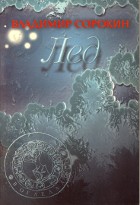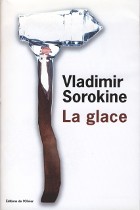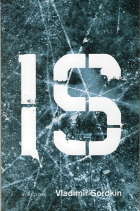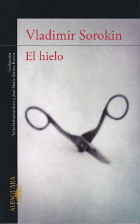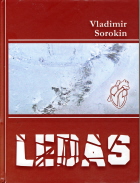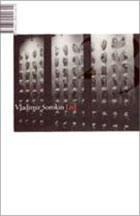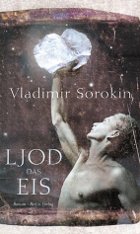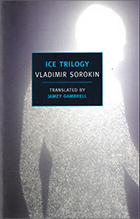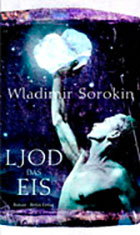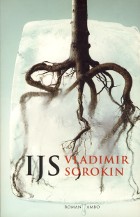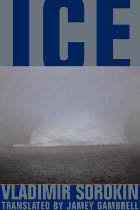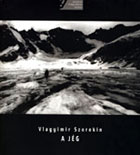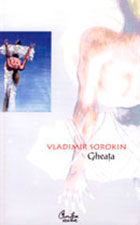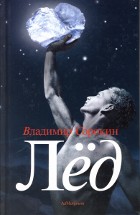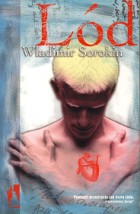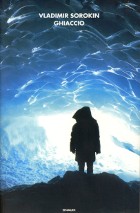Vladimir Sorokin
Ice
Proposal
Published by
- Ad Marginem, Moscow
- Ambo/Anthos, Amsterdam
- Berlin Verlag, Berlin
- Éditions de l’Olivier, Paris
- New York Review of Books, New York
- Einaudi, Turin
- Wydawnictwo W.A.B., Warsaw
- Gondolat Kiado, Budapest
- Norstedts, Stockholm
- Modrijan, Ljubljana
- Curtea Veche, Bucharest
- Agata-A Publishers, Sofia
- Kalligram, Bratislava
- Kitos knygos, Kaunas/Lithuania
- Alfaguara, Madrid
- Kawade Shobo Shinsha, Tokyo
- TV Series rights have been sold to Proton Cinema
- Kiepenheuer & Witsch, Germany (ebook edition of the Ice Trilogy)
The influential critic Kuritsyn qualified Sorokin as „probably the latest in a long series of authors who can be considered as a great Russian writer.“ Vladimir Sorokin, born in 1955, is considered an icon of the Russian post-modern movement. He published inter alia the novels „The Queue“, „Marina’s Thirtieth Love“, „Hearts of Four“ and „The Azure Bacon Fat“. Recently, the Russian youth movement „Walk together“, also known as „Putin Youth“, had a programme for collecting all his books and sending them back to the author.
Sorokin’s new novel „The Ice“ is announced as „an entirely new“ Sorokin bound to find numerous readers and even capable of interesting fans of crime novels of a certain level.
In a way, the novel presents itself as a blend of various genres: Each of its four parts is written in an entirely different style. Part One, characterised by tight and closely knit scenes, full of dialogue, is clearly inspired by the cinema and uses thriller and crime novel elements. People fall prey to a powerful sect attempting to filter out those possessing a „living heart“. Part Two is a quasi classical narrative mingled with science fiction elements, until all of a sudden a melodramatic conversion theme appears; it puts us on the trail of the Tungus meteorite that went down in Siberia in 1908. With Part Three of nearly satirical nature, the book turns into an instruction for use of a machine designed to awaken the human heart. Part Four offers a naive children’s scene reminding us of Steven Spielberg.
The plot: Part One acts in modern, socially differentiated Moscow with scenes varying from a brothel via student’s digs to the world of big business and the Mafia. Everywhere, people are being kidnapped having one thing in common: blue eyes. Only few of them stay alive – those whose heart „awakes“, begins „to speak“ after their having been struck with an „ice hammer“. The kidnapped regain consciousness in a hospital where they are told that they now belong to a secret brotherhood. Soon they find that they are unable to continue their former lives: Compared to the ecstasy generated by the „heart exchange“, all pleasures, all raptures are stale. These mysterious activities are apparently carried out by a sect requiring a continuous supply of ice – of a special quality, that is.
Part Two tells the story of a woman called „Khram“ growing up in a Russian village during World War II. On her way to deportation by the Wehrmacht to Germany as forced labourer, an SS officer rescues the young – blue-eyed – girl, awakening her heart with the aid of the said ice procedure. During her stay in a castle sanatorium in the Alps, she learns the „23 words of heart“ and, being now „consecrated“, is sent to Moscow after the war to locate further „brothers“ and „sisters“. „Bro“, the former Russian geologist participating in the historic expedition of 1927 to the Tungus meteorite, tells her the founding myth of the mysterious brotherhood:
In the beginning was light consisting of 23 000 rays. Unfortunately, a planet came into being engendering life and putting into action the unending cycle of procreation, birth, dying and new life. Each light ray became a living creature, too. The human beings emerging from this process forgot their origins. But the ancient ice of the Tungus meteorite helped „Bro“ to remember. The 23 000 brothers and sisters need to gather again so as to change back into light rays and thus repair the cosmic blunder, extinguish the earth, that hell of corporeality, sexuality and violence, and return to eternal existence.
Follows „Khram’s“ odyssey in the Soviet Union with stations from Stalin to Yeltsin. She discovers ever more people still carrying the ancient „light“ – especially among the elite, with the NKVD and then KGB, the nomenklatura, later-on also among bankers and tycoons. The combined characteristics „library“ and „blue eyes“, too, yield a big output. At the turn of the millennium, one counts no less than 18 610 “awakened”, the great day seems to be imminent …
Part Three is relatively short; it is simply an instruction for use of a machine rendering everyone happy; the machine consists of an electrically wired video headpiece including a device for collecting tears, a computer, the said hammer and a blue freezing box harbouring 23 ice cubes.
Part Four covers but three pages: A little boy wakes up, his mother isn’t there. Wanting to watch TV, he discovers a carton box containing the mysterious utensils. He takes the last remaining ice cube out of the blue box and becomes engrossed in a game in which his game figures Superman, Hi-Man and Transformer participate …
Sorokin (whose statements about himself should, however, never be taken literally) said in an interview: „’The Ice’ is my first novel where contents, not form, count uppermost. It is a reaction to the disappointment caused by modern intellectualism. Civilisation goes to pieces, people get lost and – from feeding to love – become mere products of technology. One can feel the longing for the pristine, the unbiased. My novel is about a sect which, as to form, holds many features of a totalitarian organisation, but only as to form. ‚The Ice’ is not about totalitarianism, it’s about the quest for soul’s paradise lost.“
With this novel, Sorokin moves away from the conceptualist experiments and parodistic deconstructions of Russian and Soviet classics hitherto characteristic of his works. While using various genres, he now speaks with his own voice. One might term „The Ice“ a novel of ideas: Proceeding from the Nietzschean idea of man as an imperfect being, Solokine creates the myth of a sect devoting itself to the conspiracy of the „living“ (the „heart people“) against the „dead“ (the „rational people“). The revulsion inspired by life which includes the scandal of death is ever present. The cosmic visitors – childless, exempt of sexual worry – lay claim to high moral standards, yet execute their anthropological experiments with terrifying cold-bloodedness. Insofar, the protagonists of Sorokin’s elitist-totalitarian fantasy regime are true Nietzschean supermen.
In Part Three of the novel, Sorokin proceeds from this – albeit ambivalent – myth of awakening towards a solution replacing pharmaceutical bliss makers: a powerful technological „drug“ that turns the subjects into better human beings. To this end, virtual wellness is being supplied on a quasi industrial basis; it can be procured at any time in the shops of the „ICE“ chain. All re-education attempts and utopias of the intellectuals having failed, can hope exclusively be placed in technology?
In the final part, Sorokin – this is at least one possible interpretation of this ambivalent novel – revokes his own construction through the naive view of the child for whom the mythical ice is but a toy.
Sorokin seizes upon topical fancies and popular, even trivial myths and creates a seemingly fantastic text that is yet both entertaining and critical of current times, and which by way of meaning and importance can be placed on a par with the novels of Bret Easton Ellis, Michel Houellebecq and Christian Kracht.
Sample translation
Vladimir Sorokin
ICE
___________________________
Moho
19.22
Tverskaya Street, house No. 6
A dark blue “Saab 600” drove into the yard and came to a halt.
Sitting on the rear seat reading a newspaper was Borenboim: age 44, medium height, balding, blond, intelligent face, blue eyes, narrow spectacles with gold frames, dark-green three-piece.
He finished reading. Tossed the paper on to the front seat. Picked up a slim black briefcase:
“Tomorrow, half-nine.”
“Okay.” The driver nodded: age 52, long head, ash-grey hair, large nose, thick lips, brown bomber jacket, blue polo-neck.
Borenboim got out and walked towards entrance No. 2. The mobile in his pocket rang. He took it out. Stopped walking. Held it to his ear. “Yes? Well? But we’ve already agreed. There, at nine. Na-ah, make it upstairs, the food’s better and it’s not so noisy. What? Then why didn’t he ring me at the office? Well? Lyosh, what are you talking about?… Somebody’s got their wires crossed here! I’ve got to see him face to face to give him advice! He can come here like the rest. Yeah. Look, Lyosh, this is a joint investment, his share in the fund’s 25% at most, so there’s no question of quick cash liquidity! Corporate bonds are in pretty good shape right now, they’ve been on the up for more than a month, so there’s nothing to discuss. Yes, fuck it! But returns are still falling anyway! That’s Russia for you! What advice can I give you? My advice is to come round tomorrow at ten. Okay? We can do without all this intellectual waffle… Eh? Go ahead. That’s settled, then… Oh, and Lyosh – did you hear what happened to Volodya? Last night someone brought in an excavator and dug out two cash machines. Yeah! Savva told me. Ask him, he knows the details. That’s the way the banana peels. Okay, see you.”
Borenboim went into the entrance hall.
He nodded to the concierge: female, age 66, skinny, wig, spectacles, pink and grey woolly cardigan, brown skirt, felt boots.
He got into the lift. Went up to the third floor. Got out. Took out his key. Started to unlock his door.
Suddenly something hard was pressed into his back. He started to turn round. But someone grabbed hold of his left shoulder:
“Don’t turn round. Look straight ahead.”
Borenboim looked at his door. It was steel. Painted grey.
“Open it,” ordered a deep male voice.
Bornboim turned the key twice.
“Go in. Twitch and I’ll drop you.”
Borenboim didn’t move. The end of a silencer was thrust against his cheek. It smelled of gun oil.
“You heard. I’ll count to one.”
Borenboim pushed the door with his hand. Went into the dark hall.
A hand in a brown glove took the key out of the door. The man followed Borenboim in and immediately closed the door behind him.
“Switch on the light,” he ordered.
Borenboim felt for the broad, flat switch and pressed it. Lights immediately came on throughout the five-room apartment. And music started to play. Leonard Cohen’s “Suzanne”.
“On your knees.” The man stuck the barrel of the pistol between Borenboim’s shoulder blades.
Borenboim sank down on to the beige rug with the deep pile.
“Hands behind you.”
He let go of the briefcase. Reached his hands behind hid back. Handcuffs clicked on to his wrists.
The man began going through Borenboim’s pockets
“The money’s in the desk in the study. About two thousand. That’s all there is,” Borenboim muttered.
The man carried on searching his pockets. Took out his wallet. Mobile phone. Gold “GUCCI” cigarette lighter.
He put them all on the floor.
He opened the briefcase: business papers, two tobacco pipes in a leather case, a tin of tobacco, a volume of stories by Borges.
“Get up.” The man took Borenboim under the arm.
Borenboim got up. Looked at the stranger.
The man: age 36, short, sturdy build, blond, blue eyes, close-cropped hair, fleshy face, narrow blond moustache, steel-grey raincoat, light-grey scarf, black leather rucksack on his shoulders.
“Go through.” The man prodded Borenboim with the pistol.
Borenboim walked on. They passed the first drawing room with the all-round aquarium and soft upholstered furniture. Went into the second. With the low Japanese furniture and three scrolls hanging on the wall. And the flat-screen television. The music centre standing in the corner. A blue-black pyramid.
The man went over to the pyramid. Looked at it:
“How does it turn off?”
“The remote’s over there.” Borenboim nodded towards a low quartz table. The blue-black remote was lying at the edge.
The man took it. Pressed the “POWER” button. The music stopped.
“Sit down.” He pressed down on Borenboim’s shoulder. Sat him on a low seat with a red cushion.
He put the pistol in his pocket. Took off the rucksack. Opened it. Took out a hammer and two steel pitons.
“What walls do you have here?”
“How do you mean?” Borenboim blinked, pale.
“Brick, concrete?”
“Brick.”
The man pulled two of the scrolls off the wall. Eyed up the space. Hammered a piton into the wall with three blows. Level with his shoulders. Moved along a couple of metres. Hammered in a second piton. Level with the first. Then he took out a mobile and dialled a number:
“Everything’s in place You’re on. It’s open.”
Shortly after that Dibich entered the apartment: female, age 32, tall, thin, broad shoulders, blonde, bluish-grey eyes, hard bony face, blue-grey coat, dark-blue beret, dark-blue gloves, light-blue and yellow scarf, long sports bag.
She looked round. Glanced swiftly at Borenboim on the seat.
“Good.”
The man took a length of rope out of the rucksack. Cut it in half with a knife.
They pulled Borenboim to his feet. Took off the handcuffs. Began taking off his jacket.
“Would you like to do me a favour and tell me what you want?” Borenboim asked.
“Not yet.” Dibich took his right hand and tied a piece of rope on to it.
“I don’t keep money at home.”
“We don’t want money. We’re not thieves.”
“Who are you then? Insurance agents?” Borenboim gave a nervous laugh. Licked his dry lips.
“No, not insurance agents. Dibich replied seriously. “But we do need you.”
“What for?”
“Relax. There’s nothing to be afraid of.”
They tied his hands to the pitons in the wall.
“Are you Satanists?” Borenboim was standing. With his arms extended to both sides.
“No.” Dibich took off her coat. Exposed a blue suit in fine pin-stripe.
“What do you want? What the fuck?” Borenboim’s voice broke.
The man sealed his mouth with sticky tape. Dibich unzipped her sports bag. It contained an oblong mini-fridge. She opened it. Took out a hammer made of ice. The man unbuttoned Borenboim’s shirt at the chest. Ripped his undershirt. Suddenly Borenboim kicked him in the groin. The man doubled up. Hissed sharply. Dropped to his knees:
“Fucker…”
Dibich waited. Leaned on the hammer.
“Oh, bastard…” The man grimaced.
Dibich waited a while. Looked at the scroll hanging on the wall:
“The ice is melting, Obu.”
The man straightened up. They approached the man bound to the wall. Borenboim tried to kick Dibich.
“Hold his legs!” she said.
The man flung himself forward. Threw his arms round Borenboim’s knees. Froze.
“Speak from the heart!” Dibich swung the hammer. It whistled through the air. Described an elegant semi-circle. Smashed into Borenboim’s chest. Borenboim snarled.
Dibich pressed her ear to his chest.
“Speak, speak, speak…”
Borenboim snarled. Jerked.
Dibich stepped back. Took a swing. Struck with all her strength.
The hammer shattered. Pieces flew in all directions.
Borenboim groaned. Dangled on the ropes. His head slumped onto his chest.
Dibich pressed her ear to his chest.
“Speak, speak, speak…”
There was a murmur in his breastbone.
Dibich listened intently.
The man listened too.
“Mo…ho…” Dibich articulated.
She straightened up, satisfied.
“His name is Moho.”
“Moho,” the man repeated. He frowned. He smiled.
* * *
At last the fateful day arrived: 6 July 1950.
I rose with the dawn, like the other brothers and sisters. We went out into the meadow in front of the house and stood in pairs, as always, embraced and went down on our knees. Our hearts began speaking in the secret tongue. It went on for several hours. Then we unclasped our embraces. We went back into the house, tidied ourselves up and had a meal.
After the meal Bro took me aside. He said:
“Hram, today is the day you must leave our brotherhood and set out for Russia. And you will seek the living among the dead. Awaken them and return them to life. You have travelled a long road with us. You have mastered the language of the heart. You have experienced all twenty-three heartfelt words. You are ready to serve the great goal. I shall tell you what you must know. This living tradition is handed on by word-of-mouth, it does not exist on paper. And so, listen: in the beginning there was only the Light Primordial. And the Light shone in the Absolute Void. And the Light shone for Itself. The Light consisted of twenty-three thousand luminiferous rays. And we were those rays. Time did not exist for us. There was only Eternity. And in this Eternal Void we shone. And gave birth to worlds. The worlds filled the Void. Thus was the Universe born. Each time we wished to create a new world, we assembled the twenty-three thousand rays into the Heavenly Circle of Light. All of the rays were directed into the circle and after 23 impulses a new world was born at its centre. They were stars, planets and galaxies. And once we created a new world. And one of its seven planets was completely covered in water. It was the planet Earth. We had never made any such planets before. This was the Great Error of the Light. For the water on the planet Earth formed a spherical mirror. No sooner were we reflected in it than we ceased to be rays of light and were incarnated in living beings. We became primitive amoebas inhabiting the boundless ocean. Our minute semi-transparent bodies were borne along by the water, but the Primordial Light still dwelt within us as before. And just as before there were twenty-three thousand of us. But we were scattered throughout the wide expanses of the ocean. And then billions of earth years passed. We evolved together with the other beings inhabiting the Earth. We became people. People multiplied and filled the whole Earth. They began to live by the mind, enslaving themselves in the flesh. Their lips spoke in the tongue of the mind and that tongue covered the entire visible world like a membrane. People ceased to see things. They began to think them. Blind and heartless, they became ever more cruel. They created weapons and machines. They killed and gave birth, gave birth and killed. And they were transformed into the walking dead. Because people were our mistake. Like everything that lives on the Earth. And the Earth was transformed into hell. And separated from each other, we lived in that hell. We died and were incarnated again, unable to break away from the Earth, which we ourselves had created. And always as before there were twenty-three thousand of us. The Primordial Light dwelt on in our hearts. But our hearts slept, just as the billions of human hearts sleep. What could awaken them, so that we would realise who we are and what we must do? All of the worlds created by us before the Earth were dead. Suspended in the void like decorations on a New Year tree, bringing us joy. The Joy of the Primordial Light sang in them. The Earth alone violated the Cosmic Harmony. For it was alive and developed of itself. And it developed like an ugly cancerous tumour. But the Cosmic Harmony cannot be disrupted for long. A small piece of one of the delightful decorations we had made fell on the Earth. It was one of the biggest meteorites. And it happened in 1908, in Siberia, close to the Podkamennaya river in Tungusk. It was called the Tungusk meteorite. In 1927 people of the mind organised an expedition to it. When they reached the site they saw a forest of felled trees, but they found no meteorite. There were fifteen people on the expedition. One of them was a twenty-year-old student, a blond-haired young man with blue eyes, a fanatical believer in progress. When he reached the spot where the meteorite had fallen, he experienced a strange sensation he had never known before: his heart began to palpitate. As soon as it happened he fell silent. He stopped talking to the other members of the exhibition. He could feel in his heart that the meteorite was somewhere close by. And the meteorite was giving out an energy that was influencing the young man. In just two days that energy turned his entire life upside down. The other members of the expedition thought he had gone insane. The expedition departed empty-handed. He dropped behind the expedition. And returned to the site of impact. And he found the meteorite. It was an immense block of ice. It had sunk into the swampy ground and the stagnant water had closed over it, concealing it from sight. The young man waded into the swamp, slipped and struck his chest hard against the ice. And his heart began to speak. And he understood everything. He broke off a piece of the ice, put it in his rucksack and went to look for people. The ice was heavy, it was hard to carry. The ice was melting. When he reached the nearest village all that was left of the ice was a small piece no bigger than the palm of his hand. When he went closer to the village he saw a girl asleep in the grass. She was light-haired, and her blue eyes were slightly open. He picked up a stick from the ground, fastened the ice to it with a piece of string and struck the girl on the chest with this ice hammer with all his might. The girl cried out and lost consciousness. He lay down beside her and fell asleep. When he woke, she was sitting beside him and gazing at him as though he were her brother. They embraced. And their hearts began speaking to each other. And they understood everything. And they went in search of others like them.
Bro paused and added:
“I was that young man.”
Then he continued;
“I have never spoken to you before of the goals of our brotherhood. All who have completely mastered the language of the heart can sense them. You are almost at that stage. But we cannot afford to wait, you must leave for Russia as soon as possible. And search for our brothers and sisters there. For those who do not belong to this infernal world. Those in whose hearts the memory of the Light lives on.
Looking at me, he stopped speaking.
“What must I do?” I asked.
“Sieve through the dross of humankind. Search for the gold dust. There are twenty-three thousand of us. No more and no less. We are blue-eyed and fair-haired. As soon as all twenty-three thousand shall be found, as soon as they shall all know the language of the heart, we shall form a circle and together our hearts shall pronounce the twenty-three heartfelt words. And at the centre of the circle shall arise the Light Primordial, he who created the worlds. And the error shall be corrected, the Earth shall be dissolved in the Light. And our earthly bodies shall be dissolved together with the world of Earth. And we shall once again become rays of the Light Primordial. And we shall return to Eternity.
No sooner had Bro spoken these words than there was a stirring in my heart. And I FELT everything that he had told me in our earthly language. I saw us standing in a circle, joining hands and speaking the heartfelt words.
Bro felt this. And he smiled:
Now, Hram, you know everything.
I was astounded. But one question tormented me.
“What is the ice?”
“It is the ideal cosmic substance, begotten of the Primordial Light. In appearance it is similar to earthly ice. But in fact its structure is different. When it is vibrated the Music of the Light sings in it. When it is struck against our breastbones, the ice vibrates. And these vibrations awaken our hearts.”
He said it, and I immediately felt it. And I understood what ICE is.
“There are three of our brotherhood in Russia,” Bro continued. “They will help you. And together you will do this great thing. Go now, Hram.”
Such was the beginning of my return to the land of my birth.
* * *
PART THREE
THE ICE HEALTH KIT
INSTRUCTIONS FOR USE
- Open the box.
- Remove the following from the box: video-helmet, breast-plate, mini-fridge, computer, connecting leads
- Immediately connect the mini-fridge to the mains to prevent the ice it contains from melting. Remember that the battery can only maintain the temperature required in the mini-fridge for a maximum of three days!
- After referring to the point Counterindications and making quite certain that use of the ICE health kit is not counterindicated for you, withdraw to a quiet room and lock the door so that no one can disturb you during the session of treatment. Remove all clothing from the upper half of your body and put on the breast-plate, fastening the restraining straps behind your back and across your shoulders. The mechanical plunger must be located directly over the centre of your breastbone. Open the mini-fridge and remove one of the twenty-three segments of ice. Remove the ice from its polythene packaging and place it in the receptacle of the plunger, securing it in place with the clamp. Connect the elements of the ICE kit together using the leads supplied. Insert the plug of the computer into the power socket. Assume a comfortable sitting position. Relax. Try to empty your mind. Take the lead with the control buttons in your right hand. Press the ON button. When you are certain that the ice tip of the plunger is striking you in the centre of your breastbone, place the video-helmet on your head. Each session with the ICE system lasts from two to three hours. If you experience any discomfort during the treatment, press the OFF button, which you can distinguish from the ON button by its rough surface.
- When the session is completed, remove the video-helmet and breast-plate and switch the system off. Assume a horizontal position, try to relax and think about Eternity. When you feel quite calm get up, remove the tear drains from the helmet, wash them in a warm water, wipe them dry and insert them in the video-helmet.
COUNTERINDICATIONS
Use of the ICE health promotion system by the following people is categorically counterindicated: those suffering from cardio-vascular ailments, disorders of the nervous system or psychological illnesses, pregnant women, breast-feeding mothers, alcoholics, drug-addicts, war invalids and children under the age of 18.
WARNING
- We do not recommend you to conduct more than one session in any twenty-four-hour period.
- If you have experienced any discomfort following a session, contact ICE. Our doctors and technicians will provide you with all the advice you need. Remember that the health promotion kit is designed to permit individual adjustment.
- If you fail to complete a session empty the plunger unit of unused ice completely. In order to continue the session you must insert a new segment of ice.
- Do not expose the equipment to direct sunlight, damp or low temperatures.
You can purchase ice to refill your mini-fridge at trade outlets of the company ICE.
Translation by Andrew Bromfield
